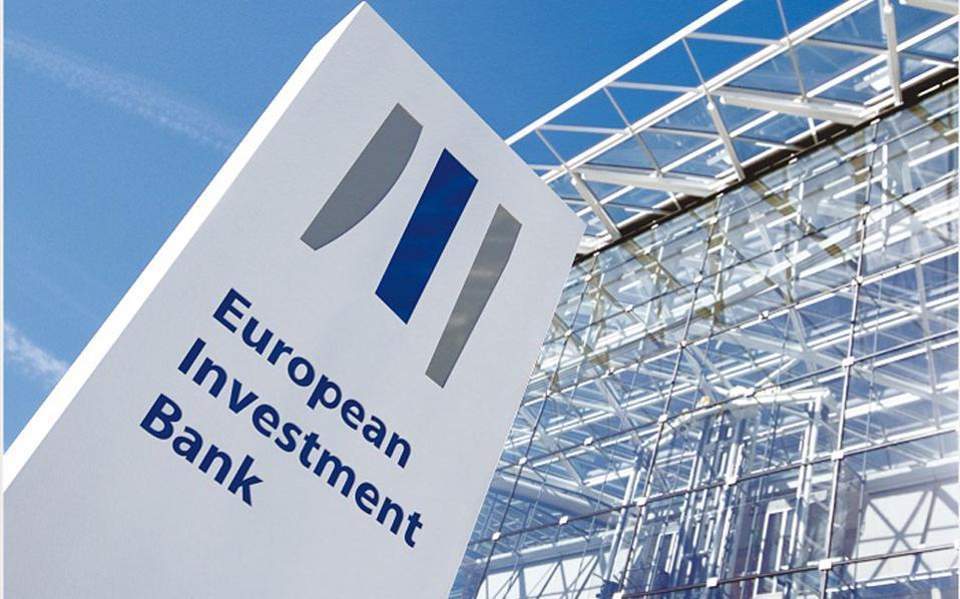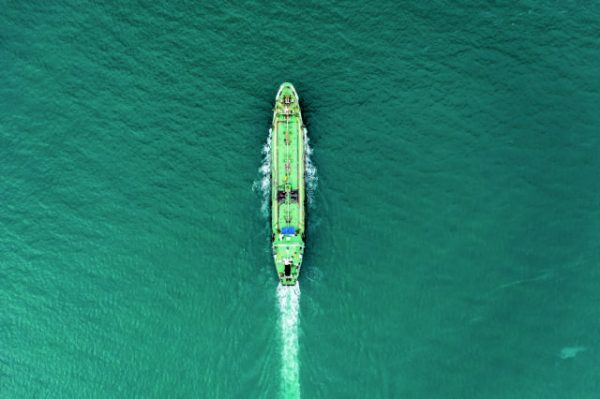
Greece is asking Brussels for a completely different role of the European Investment Bank (EIB).
Adapted to conditions of war and in order to reduce the burden on the economies of EU member states from the energy crisis, which is intensifying after the Russian invasion of Ukraine.
This is the rationale of the proposal that Greece is submitting today at three in the afternoon through the Minister of Environment and Energy Costas Skrekas to the EU Council of Energy Ministers.
This is an initiative of the Greek side with its political side being described by Prime Minister Kyriakos Mitsotakis at last week’s Summit after Russia’s military invasion of Ukraine. The Mitsotakis proposal, which is based on the solidarity of the member states, was adopted in the text of the conclusions of the European Council and yesterday Mr. Skrekas specified it by sending it to the Executive Vice-Presidents of the European Commission, Frans Timmermans and Margrethe Vestager, to the Commissioner for Paolo Gentiloni, to Energy Commissioner Kadri Simson and the French Minister for Ecological Transition and President of the Council of Energy Ministers, Barbara Pompili.
Solidarity Mechanism for the Energy Crisis
The EIB, according to the Greek government, could also proceed with the financing of subsidies to households and businesses provided by governments, as well as the cost of electricity production.
A substantially different activity of the Bank is proposed, which until now was limited to the financing of investment projects and the provision of guarantees for loans to companies.
The Minister for the Environment and Energy proposes the creation of a European Energy Crisis Solidarity Facility (ECSF).
Member States will receive 12- and 15-year low-interest loans to either finance subsidies for vulnerable households and businesses to deal with the energy crisis but also to support companies affected by sanctions in Russia. According to the Greek proposal, if a member state does not want to subsidize final consumption, it will be able to raise funding for electricity costs.
The Greek side also urges the highest European institutions to give the “green” light to the EIB for the financing of fossil fuel storage facilities and defense spending related to the energy efficiency of military installations, etc.
The loans that the EU Member States will take will be repaid with pollution revenues or energy levy.
Mr. Skrekas also asks that these loans not be counted in the deficit and the public debt of the EU member states.
March subsidies
The above-mentioned move of the Greek government essentially aims at the uniform treatment of the energy crisis, by all EU member states.
However, it is proceeding with a second move which provides support to the domestic market. This concerns the granting of the March subsidies for the electricity and gas bills. Sources speak of an aid package of 350 million euros.
The political leadership of the Ministry of Environment and Energy is ready to provide the March subsidies to the electricity and gas bills of households and businesses. Within the next few days, the relevant decisions will be signed, which will provide aid totaling approximately 350 million euros, which is the same as the February package. The average wholesale electricity price will close slightly lower than the previous month.
“Plan B” for energy efficiency
On the energy adequacy front, the Ministry of Environment and Energy in cooperation with the Crisis Management Committee has prepared plan B in case the EU sanctions. with the exclusion of Russia from SWIFT cause the interruption of gas supply. As it was announced last Friday in such a case, the supply of the Greek system will be done with natural gas from the LNG storage facilities in Revythousa and the TAP pipeline.
Revythousa gas reserves are at a high level, while the building of strong diplomatic and trade relations between Greece and the USA, Qatar and Algeria will allow the supply of additional LNG cargo in case the supply of Russian gas to our country is interrupted. Regarding the time of replenishment of LNG quantities, sources note that a cargo to reach the island opposite Megara and unload the quantities of liquefied gas takes about 5 to 7 days.
In addition, the operation of lignite power plants, hydroelectric power stations and natural gas plants that have the ability to operate with diesel is also ready.
Latest News

German Ambassador to Greece Talks Ukraine, Rise of Far Right & Tariffs at Delphi Economic Forum X
Commenting on the political developments in his country, the German Ambassador stressed that it was clear the rapid formation of a new government was imperative, as the expectations across Europe showed.

Athens to Return Confiscated License Plates Ahead of Easter Holiday
Cases involving court orders will also be excluded from this measure.

Servicers: How More Properties Could Enter the Greek Market
Buying or renting a home is out of reach for many in Greece. Servicers propose faster processes and incentives to boost property supply and ease the housing crisis.

Greek Easter 2025: Price Hikes on Lamb, Eggs & Sweets
According to the Greek Consumers’ Institute, hosting an Easter dinner for eight now costs approximately €361.95 — an increase of €11 compared to 2024.

FM Gerapetritis Calls for Unified EU Response to Global Crises at EU Council
"Europe is navigating through unprecedented crises — wars, humanitarian disasters, climate emergencies," he stated.

Holy Week Store Hours in Greece
Retail stores across Greece are now operating on extended holiday hours for Holy Week, following their Sunday opening on April 13. The move aims to accommodate consumers ahead of Easter, but merchants remain cautious amid sluggish market activity.

Green Getaway Ideas for Easter 2025 in Greece
Celebrate Easter 2025 in Greece the sustainable way with eco-farms, car-free islands, and family-friendly getaways rooted in nature and tradition.

Civil Protection Minister Details Summer Firefighting Plans at Delphi Forum
At the 10th Delphi Economic Forum, Minister of Climate Crisis and Civil Protection Yiannis Kefalogiannis discussed Greece's plans for the upcoming fire season.

How Shops and Markets Will Operate During Easter Holy Week
The Easter holiday schedule has been in effect since April 10, with retail stores open Palm Sunday, and most supermarkets also operating to meet consumer demand for Easter shopping

Why Is the French Aircraft Carrier Charles De Gaulle in Piraeus?
Docking in Piraeus after a four-month deployment in the Indo-Pacific region, the admiral of the aircraft carrier the Charles de Gaulle says, "Greece is our best partner in the Mediterranean."








































 Αριθμός Πιστοποίησης
Αριθμός Πιστοποίησης